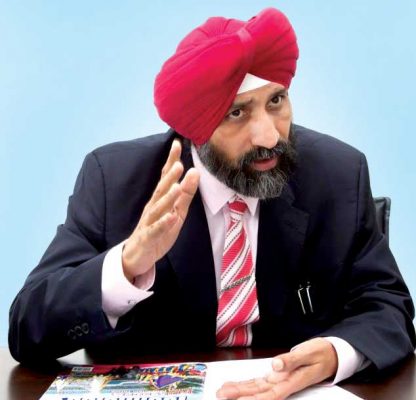 DrLakhvinder Singh is Director of Peace Programme at Asia Institute in Seoul, South Korea. He holds Doctorates (Ph.D) in Korean studies from Sungkyunkwan University in Seoul, South Korea, and international politics from Jawaharlal Nehru University (JNU) in New Delhi, India. He worked as a visiting professor at Institute of Far Eastern Studies for eight years. He has more than 300 published papers and articles to his credit during his academic career. In 2014, he published a book entitled South Korea-India Strategic Cooperation.
DrLakhvinder Singh is Director of Peace Programme at Asia Institute in Seoul, South Korea. He holds Doctorates (Ph.D) in Korean studies from Sungkyunkwan University in Seoul, South Korea, and international politics from Jawaharlal Nehru University (JNU) in New Delhi, India. He worked as a visiting professor at Institute of Far Eastern Studies for eight years. He has more than 300 published papers and articles to his credit during his academic career. In 2014, he published a book entitled South Korea-India Strategic Cooperation.
Dr Singh was also Editor-in-Chief of Asia-Pacific Business and Technology Report published from Seoul for seven years. This journal is an important source of information about contemporary business in Korea. He is a central figure in Korea-India relations, and was recently called the “Father of India-Korea Strategic Partnership” by Vice Defence Minister of Korea Dr. Seung Joo Baek as recognition of his work in promoting India-Korea defence cooperation. For his leading social and academic work, he was honoured with honorary citizenship of Korea in 2018 by the Seoul Government. He is based in Korea with wife and two children for the past 23 years.
In an interview to Ajit K Thakur, Editor, Raksha Anirveda, Dr Singh said that with the changing geopolitical order and rising China, a strong India-South Korea defence and strategic relations is the need of the hour. The ties can become even much stronger with the inclusion of Japan at trilateral level. An excerpt:
What’s your view on the new geo-political construct of South Asia and Southeast Asia with the rising power of China especially in South China Sea?
Asia pacific region is going through fundamental power shift as we speak. The US no longer enjoys the dominant position it used to do so a decade ago. Today China is occupying the top position being vacated by the US. More and More regional countries which were used to be close allies of US have begun moving towards China. It is just a matter of time before we have a new regional order in the region led by China.
Taking note of close India-Japan bilateral and strategic relations, do you see any impact on India-South Korea (ROK) strategic relations which seem to be unfolding since South Korean President’s State visit to India in 2018?
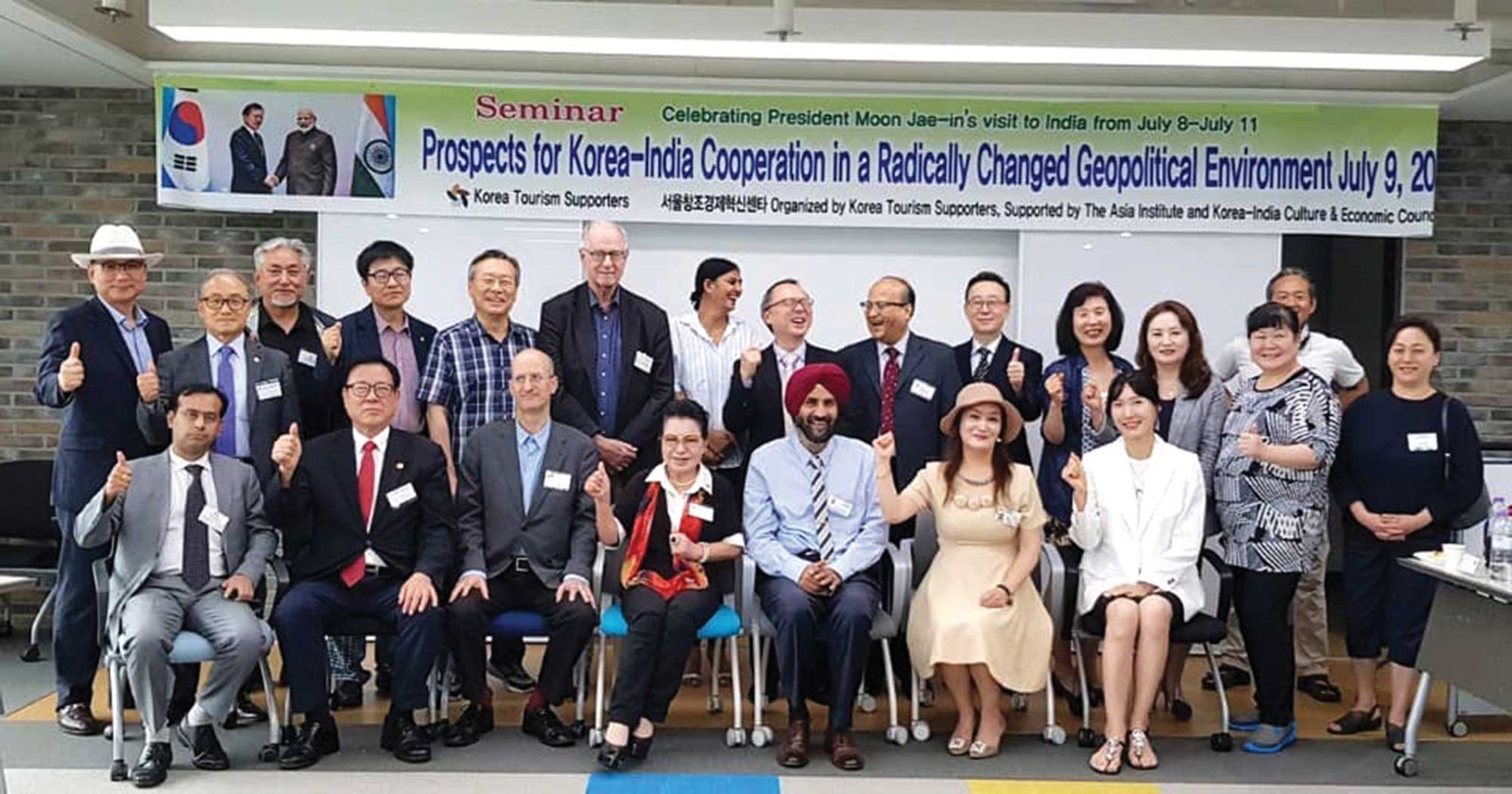
Yes. I do. Stronger India Japan relations are having positive impact on the growth of stronger India-Korea Strategic ties. Working together these three countries have the ability to seize the initiative and emerge as new agenda setters for the region. Since South Korean President’s State visit to India in 2018 relations between the two countries have seen upward trajectory. We should make every possible effort that it stays for long time to come.
ROK Defence Minister has committed regarding investment by Korean defence companies in newly created two defense corridors of Tamil Nadu and Uttar Pradesh. Please elaborate on the investment progress so far?
Two new defence corridors created by Tamil Nadu and Uttar Pradesh are being very seriously pursued both by Korean Government and Korean defence industry. More than 10 South Korean defence companies, including Hanwha, LIG Nex1, Korea Aerospace Industries and Hyundai Rotem, exhibited their products at the DefExpo held in Lucknow earlier this year from February 5 to 8. From this level of engagement you can imagine the kind of interest Korean defence companies are showing in fast growing Indian defence sector. Thus we can easily say that in the coming years we can expect big growth of cooperation between India and Korea in this sector.
Beginning with Prime Minister Narendra Modi’s visit to South Korea in 2015 and the successive events like ROK President’s visit to India, proposed 2+2 dialogue, Indian Defence Minister’s visit to that country and many others have happened so far? How do you visualise the future roadmap of defence and strategic relations of two countries?
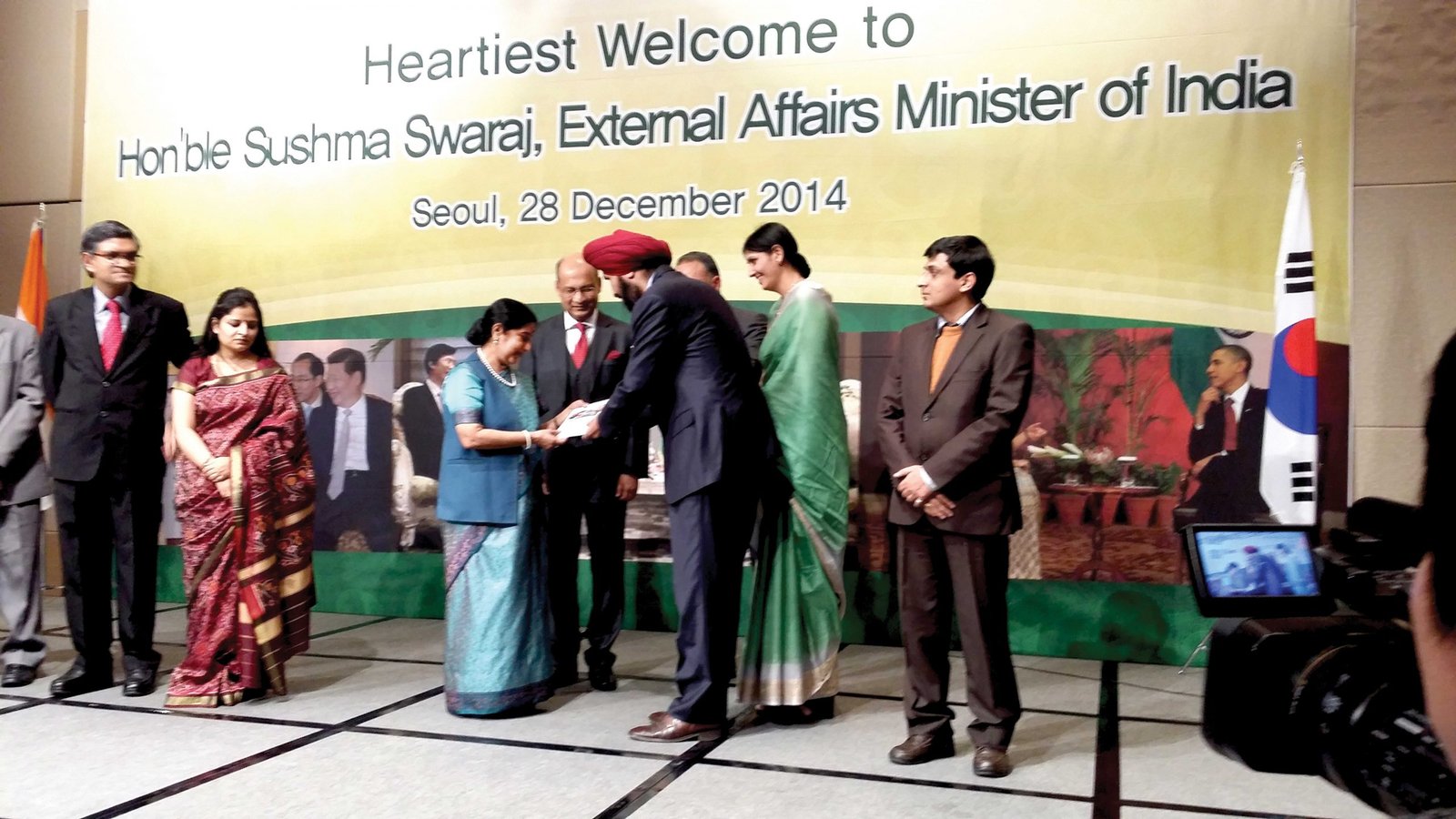
Future roadmap of defence and strategic relations of two countries is very bright and full of new potentials. There are millions of things which we can do together in defence sector from joint production of our weapon systems to joint training of our military personnel and joint crafting of strategic policy in between. Indian Navy and Korean navy joining hands together to maintain the freedom of navigation in Indian Ocean, which can bring fundamental power shift in the Ocean. Free and open Indian Ocean is the common area of interest where both the nations see potential of working together.
Apart from the signing of MoUs at G-to-G level, a few like L&T has signed an agreement with Korean HanwaTechwin to make K9 Vajra among others. Also, in September 2019 India, Korea have drawn up forward looking roadmap for defence industry. Your take on private sector participation with some significant figures?
My take on private sector participation is very positive. As we all know there exists a strong partnership between Indian and South Korean companies in various defence projects. For example South Korean defence major LIG Nex1 and Reliance Defence are planning to manufacture military hardware for Indian Armed Forces. Leading player in smart heavy weapons in categories of anti-ship missiles (ASM), anti-tank guided missiles (ATGM), and guided rockets LIG Nex1 is one of Korea’s top defence companies.
India has a goal of becoming among the top five global producers of the aerospace and defence manufacturing with annual export target of US$5 billion by 2025. India domestically produces only 45 to 50 per cent of defence products it uses, and the rest are imported. Here Indian Korean private sector has huge opportunity to work together with Korean defence industry achieve these export goals.
Experts say to keep Indian Ocean Region free and open, South Korea, India and Japan should be on the same page. How significantly India plays a role for trilateral balance of power especially with aggressive expansion of Chinese defence power?
Yes. Very true. These three countries depend heavily on Indian Ocean for their trade and energy. For example more than 90 per cent of Korean and Japanese energy flows through the Indian Ocean. Any hostile takeover of Indian Ocean can hurt these countries very deeply. They have no choice but to work together if they do not want to destabilise their economies and hurt their security interests.
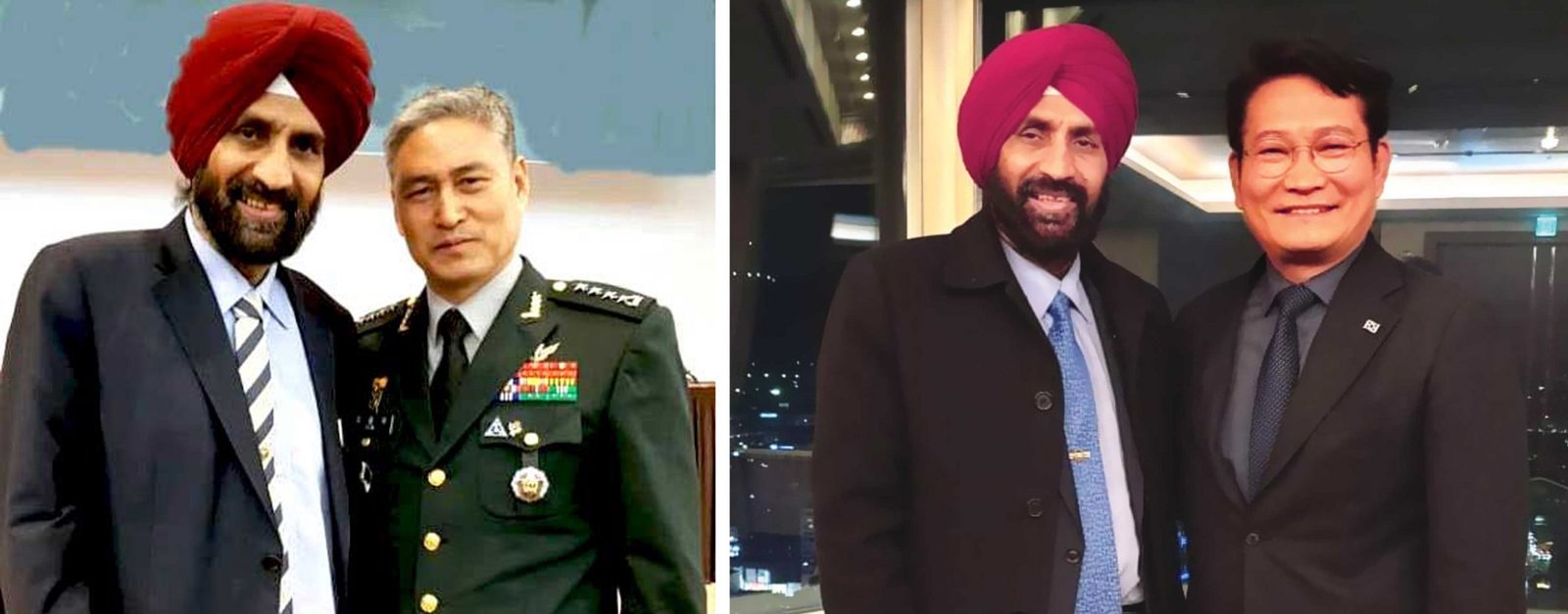
However, unfortunately domestic political and historical issues are coming into the play and hurting bilateral partnership between Korea and Japan. Korea and Japan has to settle these legacies issues as soon as possible before it is too late. Trilateral cooperation among India, Japan and Korea is the urgent need of the hour. Either we stand together or we perish in the deep ocean separately. Choice is ours.
From India’s ‘Look East’ to ‘Act East’ policy and South Korea’s ‘New Asia Initiative’ to ‘New Southern Policy’, how far these newly designed policies of both countries been able to present Asian nations interest at the world stage?
Honestly speaking it is the same policy with two different names. There is not much difference on the ground between ‘Look East’ and ‘Act East Policy’. We need to do much more to strengthen our ties with Asia pacific region than changing names of our policies. South Korea‘s ‘New Southern Policy’ is grand opportunity for us. We should embrace it completely. For first time since independence South Korea is looking towards India for all round deeper engagement. It is God sent opportunity for us to deepen our engagement with Korean peninsula. We must not miss the chance. Only two years are left before we have a new president and Korea’s foreign policy focus is changed.
We should give up denial and accept the ground reality in the region. Given the growing Chinese engagement in the region we are being pushed back like never before.
What could be the possible way forward to expedite India-Korea defence and strategic relations in the current challenging scenario? How can they play complementary to each other to keep Asia-Pacific or Indo-Pacific safe, and taking the tie-up to the next level?
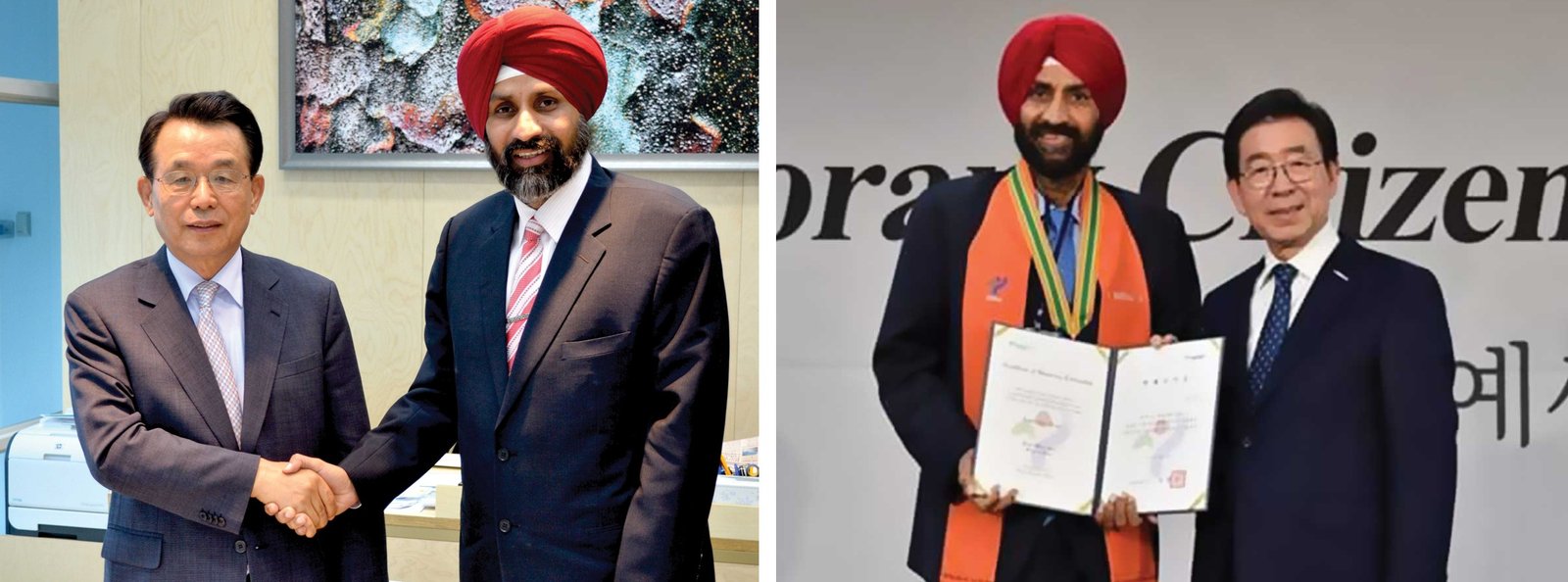
Very good question. The possible way forward for two countries is to align our defence policies and priorities with each other as much as possible and understand and support in meeting each other’s concerns. For example for Korea peaceful unification of Korea is number one priority. India should help Korea in achieving that objective as much as possible. Similarly for India keeping the Indian Ocean free from any foreign intrusion is number one security goal. South Korea with one of most powerful and modern navy can help India to meet its security concerns in the Indian Ocean. It is only through helping each on most pressing issues facing both countries we can take this partnership to next level. We simply cannot depend on trade and investment alone to build long term and sustainable partnership in fast changing regional order though increased trade and investment could also play stronger role in strengthening the partnership.
Final comment, if any?
India and Korea working together has the potential to change the tide of time and help build a new regional order which protects our economic and security interests. But unfortunately our policy makers and diplomats do not completely realise the full potential of this partnership. So far they have been only providing lip service to this partnership. Currently there is lot of symbolism in our partnership. It is time we get real and do some real piece of work on the ground. Our trade volume is too small given the potential of our economic partnership. We are still struck with less than US$ 22 billion trade per year. And given the current low growth rate our trade target of US$50 billion by 2030 may not be achieved. With the US withdrawing from the region Korea is fast tilling towards China. It will have far reaching security consequences for us. It is high time we give up denial and accept the ground reality of power shift in the region and redraft our engagement policy with Korea. It is now or never.








